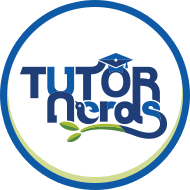Nutrition, Exercise and Study: A Triangle of Success


I remember my ultra fast high school metabolism and the wonderful foods that went along with that. Pancakes with extra syrup for breakfast, a chocolate muffin and some chips for lunch, coffee for a snack and whatever mom made for dinner. Yikes! It’s amazing that I graduated at all. This is not a diet for success. Lots of carbohydrates and refined sugar are very tempting to relieve stress but it is not great brain fuel. I also remember that nutritionists talked to us about eating ‘brain food’ the day before a big exam but the reality is that healthy nutrition habits are most effective in the long term.
Exercise also plays a big role in academic success. Sitting for hours at a time is not really that healthy. Whether you are walking 20 minutes a day or running 20 minute 5K races for the track team, any exercise can be helpful.
I am a private Orange County tutor, not a nutritionist or a personal trainer, but these diet and exercise tips seem to work for most students. You will need to choose what’s right for you based on your abilities and your current level of health – choose what’s best for your mind with one of our Irvine in-home academic tutors and get sharp before the school year starts.
I’m not saying that sweets are evil or that you shouldn’t eat them but eat some carrots too. Sweets as an addition to an otherwise healthy diet add a few extra calories but won’t necessarily destroy your ability to study. The problem with eating all of those chocolate muffins and candy is that they fill the stomach so that you aren’t hungry for healthier foods like veggies and fruits. Veggies and fruit contain vitamins and minerals that are essential to brain growth and function (READ: “Vegetables and Fruit: Get Plenty Every day“).
I did not like team sports and so I didn’t participate in any; many students that I talk to feel the same way that I did. There are tons of other ways to get some exercise. Running or walking, a yoga class, dance, a gym workout, swimming, playing tennis, shooting hoops in your driveway etc… are all ways to get the blood pumping without being on a team where you might be sitting on the bench for part of the time (READ: “How to Balance Sports and Academics in High School“). On the other hand, if you like team sports, most schools offer options like soccer, basketball, lacrosse, track and field, and football. If your school doesn’t offer after school sports, there are many local places to sign up to be on a team.
It’s also important to listen to your body. If your back has molded into one giant piece of stone from sitting in a study chair all day, then it’s time to get up and walk around or do some stretches. Alternatively, if your knee is hurting from running too much or too fast then it’s best to prop your leg up on a chair while you study and take a break from the running. Your body will tell you when to move and when to take it easy if you listen (READ: “Coping with Stress as a Teen”).
Also, if your mind is starting to get cluttered with masses of information that is getting jumbled up into one ball of facts and figures, then I recommend going for a brief walk in the fresh air. We live in Orange County after all so the weather’s nice all year round. If you are overly mentally fatigued from studying try taking a 20 minute nap or laying down for a few minutes to recharge the brain. A rested mind can absorb more information.
Rest is most certainly part of the nutrition, exercise and study triangle. Your body needs to be asleep to absorb all of that healthy protein and it needs to be asleep to repair minor muscle fatigue from that energetic exercise routine. Getting eight hours of sleep a night is essential to academic success.
Protein is your best ally when it comes to staying alert. There is nothing wrong with that pancake breakfast that I mentioned earlier if I were to replace the extra syrup with some fruit and a couple of scrambled eggs. Protein helps us stay awake and it helps us focus on both mental and physical tasks (READ: “Why is it Important to Make Lean or Low-Fat Choices from the Protein Foods Group?“)
Foods like whole wheat bread, brown rice and oatmeal are very healthy and they tend to metabolize slower so that you can sustain your energy levels while studying. Add complex carbohydrates as a regular part of your diet and you may find that those study ‘crashes’ happen less and less (READ: “Choose My Plate: Grains“).
A good diet and exercise program can also help you through life in general. People who exercise regularly are more likely to live a long and healthy life and people who maintain a well balanced diet can lead to a more productive day and a generally healthier lifestyle.
